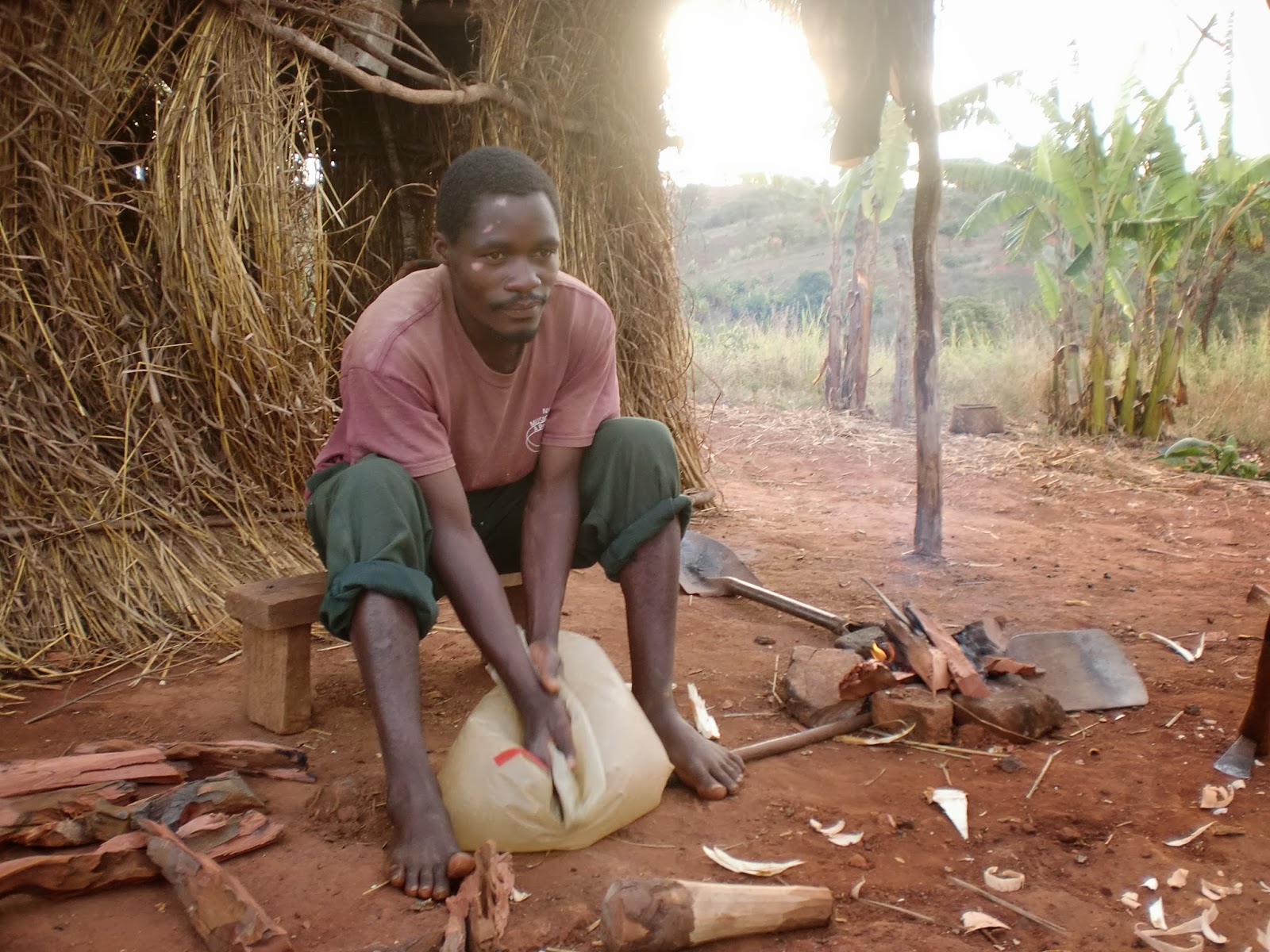The group were all ready for the English Mass which started at 7.00a.m. The Church Bell rings every day at 6.00a.m. signalling the start of the new day, although we have heard the rooster before this time. For some of us this was half and hour extra lie in because the week day Mass is at 6.30a.m. All the students were proudly wearing their St. Matthew's school uniform. A very warm welcome was extended to the group at Mass. It must have been quite daunting for the students standing at the front of the Church to introduce themselves, however all of them spoke very well.
We had a quick breakfast consisting of coffee, toast, boiled egg and a choice of Blue Riband margarine or peanut butter which is very popular in Malawi. |On the table there are always bananas because they are freely available and they are a good price.
Our second Mass of the day started at 10.00a.m. which is spoken in Chitumbuka, the local language. We were all delighted to have heard the good homily at the first Mass so we could still follow. The hymns thankfully have easy choruses therefore we were able to join in some of the singing. It is wonderful to see the altar boys and congregation moving and dancing to the hymns. At the offertory as well as presenting the bread and wine there were also gifts from the Parish groups consisting of soft drinks, bread, eggs, flour etc. for the Priests. It was hot in the Church so you can imagine that after two and a half hours when Mass finished were ready for a cold drink.
In the afternoon we visited the village of Juno which is 17km from Mzuzu. The tarmac road becomes the red dusty road into the countryside. Some of the landscape is greener than before due to the rain which had fallen before our arrival. Fortunately it has made the temperatures a little cooler, although it is still hot for us. Father Philip explained that during the rains it is very difficult to travel over the muddy track to the village. The villagers do not visit Mzuzu city on a regular basis; they would have to walk all the way or walk several kilometres to the nearest trading post to try and get transport. Mass is only celebrated here a few times of the year.
The villagers, adults and children were very happy to share their culture with us. We all gained a better understanding of village life. We were given the opportunity to pound maize. Usually the women do this to prepare for making nsima. This was hard work. One of the ladies demonstrated how she would mould the clay for the cooking pots. We then went to fetch the water from the spring which was not very far away but the ground was rugged and the hill track down was very steep. Some of the students filled the basins and buckets with water then proceeded to carry them up the hill on their head. Much of the water spilled over and they were very tired by the time they got to the top of the hill. This is one of the daily tasks of the villagers. I now understand better why Malawians do not regard walking as a leisure activity.


No comments:
Post a Comment